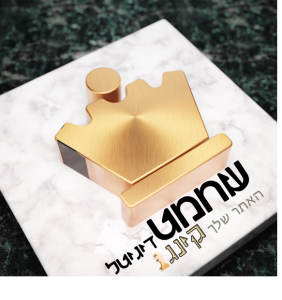Rebecca
Rebecca then took her older son Esau’s best garments which were with her in the house and clothed Jacob her younger son.” (Genesis 27:15)
Esau is typically portrayed in negative terms in our tradition with one exception: he is a paradigm of kibbud av v’eim – respecting one’s parents.
Rabbi Shimon ben Gamliel said: “All my days I attended upon my father but I did not attain to one hundredth of the attention Esau gave his father, for I attended him in soiled garments and when I went out to the marketplace I went with clean clothes. When Esau, however, attended his father, he waited upon him in regal garments, saying, ‘Father’s honor is to be respected only in regal garments.” (Bereishit Rabbah 65:16)
Now “Honor your father and your mother, as the Lord your God commanded you, that you may long endure, and that you may fare well, in the land that the Lord your God is assigning to you.”(Deuteronomy 5:16) is one of the Ten Commandments: yet in discussing the extent to which someone should honor one’s parents, the Talmud uses the example of Esau’s descendant Dama the son of Netina, a Roman nobleman who was not obliged to fulfil these commandments
Rav Yehudah said in the name of Shmuel: Rabbi Eliezer was asked: How far does the honor of parents extend? Said he: Go see what a certain idol worshiper, Dama, son of Netinah by name, did in Ashkelon. Once the Sages sought jewels for the ephod (breastplate for the high priest) at a profit of six hundred thousand golden dinari- Rav Kahana wanted to offer eight hundred thousand golden dinari – – but as the key(to the jewel storage place) was lying under his father’s pillow, would not disturb him.. The next year the Holy Blessed One gave him his reward: A red heifer was born to him in his herd. When the Sages of Israel went to him to buy it he said to them: I know, that even if I asked you for all the money in the world you would pay me, but I ask you only the money I lost by honoring my father.”. And Rabbi Chanina said: If this is the reward given to someone who is not commanded and acts, then imagine how much greater the reward would be for someone who IS commanded and acts. For Rabbi Chanina said: Greater is the one who is commanded and acts than the one who is not commanded and acts. (“One who is commanded and acts is more praiseworthy than one who is not commanded and acts.”) (Kiddushin 31a)
It is interesting to note that in discussing the extent to which someone should honor one’s parents, the Talmud uses the examples of Esau and his descendant Dama the son of Netina , Yet, while Esau and Dama are extolled for their respect for their father, the point of the Talmud is not the extolling of these two personage but it is to teach us one of the defining attitudes that distinguish Judaism and is central to its beliefs. Namely, that: “The one who is commanded to act (Jewish person) and acts is greater than the one who is not commanded and acts (Esau and Dama the Roman Nobleman). We usually think that the volunteer deserves greater reward than the one who acts out of duty or obligation but that is not the case!
Many reasons are given explaining why the one who acts because he is commanded is more praiseworthy than volunteer, one being that the person who does good deeds because he is commanded to do so, is obeying a code that is greater than he/she is. Even if the individual does not feel like engaging in the act, he/she will do so. On the other hand, the person who does not feel obligated to a particular commandment does well because he feels it is right and feels like doing so – and only then. In the final analysis, which individual is more reliable? The one who always does what he feels is right or the one who acts in accordance with a moral code to which he feels obligated?
Indeed the Rabbis extol the virtue of Esau and Dama for their specific acts of filial respect but the lesson to be learned is that do-gooders who act in accordance with their own conscience are not to be counted upon to do the right thing when it does not suit them.

 שחמט דיגיטל
שחמט דיגיטל